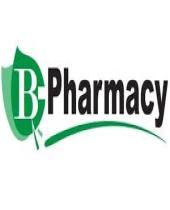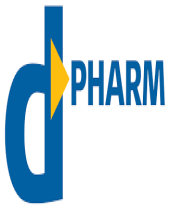AN OVERVIEW
SUBHWANTI INSTITUTE OF PROFESSIONAL EDUCATION is one of the leading institute of Paschim Champaran, Bihar established in 2020, with a view to promote excellency in Pharmacy education and to prepare upcoming generation to meet the challenges in the area of Pharmaceutical industries, Education, Research & development by utilizing leading edge technologies.
 Pharma Courses
Pharma Courses
 Certification
Certification
 Book Library
Book Library
 Best Teachers
Best Teachers
 Transport Facility
Transport Facility
 Excellent Lab
Excellent Lab
Campus Infrastructure

Hostel
A hostel is a place where students usually live and which is managed or controlled by administration. Hostel is basically for those who have to shift to other cities for their studies.The MUIT facilities list also includes an auditorium, cafeteria, wifi, indoor & outdoor sports facilities, etc.

Events
Dance is an art form, often classified as a sport, consisting of sequences of body movements with aesthetic and often symbolic value, either improvised or purposefully selected.

Academia
There is never a dull moment on the exquisitely built campus, which has fascinating aesthetics and is constantly in motion thanks to the abundance of activities going on. We promote a welcoming and accepting climate that fosters the community’s expansion and development among students.

Sports
Sport is a form of physical activity or game.Often competitive and organized, sports use, maintain, or improve physical ability and skills. They also provide enjoyment to participants and, in some cases, entertainment to spectators.
FAQs
A Bachelor of Pharmacy (B. Pharma) is a four-year undergraduate degree program that offers a comprehensive understanding of pharmaceutical sciences. It covers various subjects such as pharmacology, medicinal chemistry, pharmaceutics, pharmacognosy, and pharmaceutical analysis. B. Pharma provides a deeper theoretical and practical understanding of pharmacy and opens up opportunities for higher education and research in the field. It is typically preferred for individuals aiming for roles like pharmacists, pharmaceutical researchers, or pursuing further studies like a Master's or PhD.
On the other hand, a Diploma in Pharmacy (D. Pharma) is a shorter program typically lasting for two years. It offers a more focused and practical-oriented approach to pharmacy education. D. Pharma equips students with the necessary skills and knowledge required to work as pharmacy technicians, assistants, or pursue entry-level positions in the pharmaceutical industry. It is suitable for individuals seeking quicker entry into the workforce or those looking for a more hands-on approach to learning.
So, if you're looking for a comprehensive education in pharmacy with broader career prospects and potential for further studies, B. Pharma might be the better option. However, if you prefer a shorter duration program focused on practical skills and immediate entry into the workforce, D. Pharma could be more suitable. Ultimately, the choice depends on your career aspirations, time constraints, and personal preferences.
Universities typically offer a range of training and placement facilities to help students transition from academics to the workforce. Here are some common services you might find:
Career Counseling: Many universities provide career counseling services to help students explore their interests, skills, and career options. These sessions can assist students in making informed decisions about their academic and career paths.
Resume/CV Building Workshops: Workshops or one-on-one sessions focused on crafting effective resumes and curriculum vitae (CVs) tailored to specific industries or job roles.
Mock Interviews: Practice interview sessions to help students refine their interview skills, receive feedback, and gain confidence in presenting themselves professionally to potential employers.
Job Search Assistance: Resources and guidance for finding job opportunities, including job boards, job fairs, networking events, and connections with alumni or industry professionals.
Internship Programs: Assistance in securing internships relevant to students' fields of study, which can provide valuable real-world experience and networking opportunities.
Career Development Workshops: Workshops covering topics such as job search strategies, networking, personal branding, negotiation skills, and workplace etiquette.
Industry Partnerships: Collaborations with companies and organizations to facilitate internships, co-op programs, research projects, and potential job placements for students.
Alumni Networks: Access to alumni networks for mentorship, career advice, and potential job referrals.
Professional Development Resources: Access to online resources, books, and workshops aimed at enhancing professional skills such as communication, leadership, time management, and project management.
Employer Engagement: Events, panels, and networking opportunities that connect students with potential employers, allowing them to learn about job opportunities and industry trends directly from professionals.







